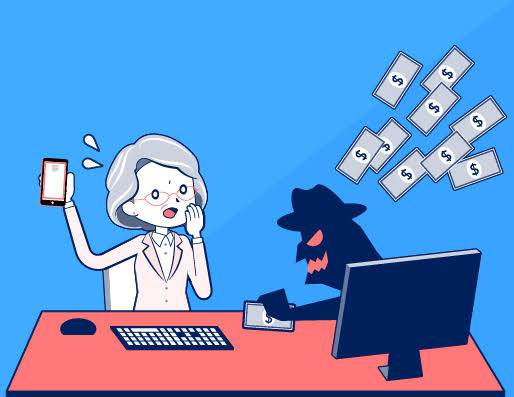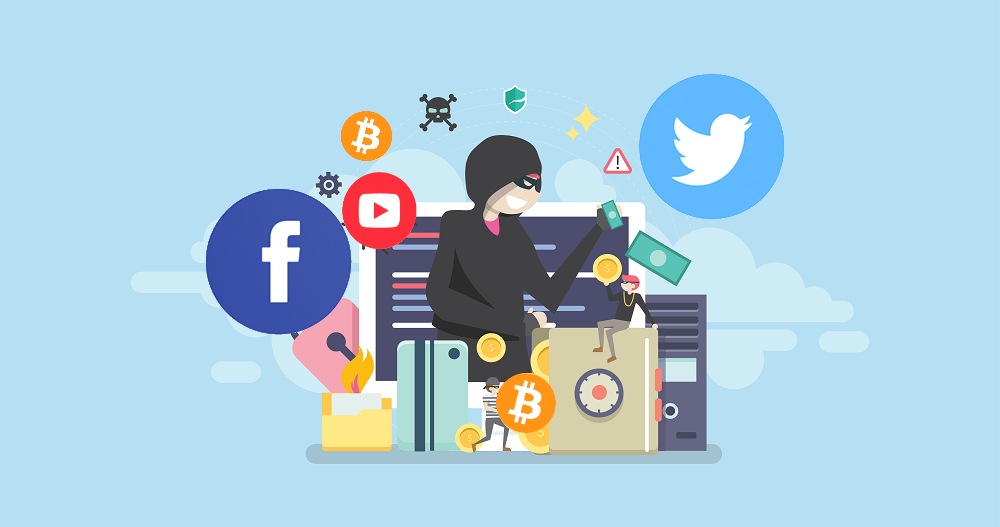Hello!
 Every day that passes the communication through social networks increases both the number of users and the time of permanence on social platforms, Cyberladrones are already aware of these statistics, day by day they are renewed with new methods to try to defraud Internet to users.
Every day that passes the communication through social networks increases both the number of users and the time of permanence on social platforms, Cyberladrones are already aware of these statistics, day by day they are renewed with new methods to try to defraud Internet to users.
Logically, if people are on social networks too, for this reason, it is necessary that you know the 5 most widespread social media scams on social networks and how not to fall for them.
In a recent report prepared by Kaspersky’s Computer Security technicians, they place our country in the eleventh place in the countries that send the most malicious files.
The Ciberladrones do not cease in their attempts to appropriate the alien and are willing to engineer any type of method that allows them to achieve their desired goal of accessing user accounts and taking everything they can.
5 Social network scams according to Kaspersky Lab
 The scams Internet every day are more common, is that despite the advantages this medium offers, thanks to the widespread use that has been generated networks worldwide, have also emerged scammers who use this channel will take advantage of the least informed. Today, we are going to tell you the most used internet frauds on social networks and how to avoid them.
The scams Internet every day are more common, is that despite the advantages this medium offers, thanks to the widespread use that has been generated networks worldwide, have also emerged scammers who use this channel will take advantage of the least informed. Today, we are going to tell you the most used internet frauds on social networks and how to avoid them.
Internet scams most used in social networks
1. The discount coupon scam
In recent months it is a type of fraud widespread in the main social networks, they deceive users through false surveys, in which supposedly at the end they will get a discount voucher, the promised discount coupon never really arrives, in addition to that simulate websites of different national and international companies.
The sole purpose of these surveys is to obtain personal data from users, to create premium subscriptions or even Emails to sell to third parties for commercial uses.
2. WhatsApp Fraud Gold Edition
 The police and the civil guard warned a few months ago of this scam, which can leave you for 36 Euros a month, click here to expand the story.
The police and the civil guard warned a few months ago of this scam, which can leave you for 36 Euros a month, click here to expand the story.
Through this scam, they inform users that if they subscribe they will have many more functions in their application, what they really do is get the phone number to subscribe their victim in Premium SMS services.
Logically this is a fraud since there is only one version of WhatsApp available. If we ever come across this message, it is best not to open it and delete it.
3. The Voice Message scam
Cyber squads send an email on behalf of WhatsApp with an alleged voice message from a contact on the victim’s agenda, when they download the message they infect the device with malware.
So far WhatsApp has never had voice answering service, so if we get this other message the best option is to delete it.
 From WhatsApp they inform the users of the application that the company does not send text messages or emails and add that, you will only receive some kind of response in case you have previously contacted their support team.
From WhatsApp they inform the users of the application that the company does not send text messages or emails and add that, you will only receive some kind of response in case you have previously contacted their support team.
Regarding this application, another internet scam also circulates, which promises to spy on conversations outside your contacts, the existing legislation would never allow this type of service of violation of people’s privacy, in exchange if any user falls into this trap the only thing that you will get a charge on your bank account.
4. Facebook fraud: Modify the colour of your page
On another occasion the cyber drills repeat an old trick with the intention of obtaining the phone number of users to activate the Premium SMS service , through messages users are informed that they can freely change the blue background of their Facebook profile, This way, if you click on the URL they redirect you to their webspace, in which the only objective is to get the user’s phone number.
5. Parcel notification scams
 On this occasion, the main objective of Cyber Drugs is to infect your victim’s PC with malware, they send an email on behalf of one of the main shipping companies in this way when the user downloads the file is infected. In this type of online fraud, it is best to look at the sender since your email address is not usually that of the company.
On this occasion, the main objective of Cyber Drugs is to infect your victim’s PC with malware, they send an email on behalf of one of the main shipping companies in this way when the user downloads the file is infected. In this type of online fraud, it is best to look at the sender since your email address is not usually that of the company.
In the last months, Internet frauds have increased considerably in social networks, Cyber drunks are still using classic methods and sometimes they are renewed with new tricks, it is not surprising that they have increased their presence in this type of platforms since each They are used more and more people.
8 Tips to avoid Internet scams on social networks
Kaspersky Lab has recently alerted us to the 5 most widespread internet scams on social networks. These that we have told you, are currently the TOP but every year there are many new viruses and frauds. Yes, I know that now you will logically ask yourself how you can prevent falling into Cyberbill nets so here are 8 practical tips to avoid scams. Put them into practice and enjoy surfing the net, that’s what it is for.
8 tips to avoid online scams
 One of the main recommendations for not opening unwanted emails, never having activated the preview panel of the Emails or the images they contain, in addition to always checking the sender and spelling mistakes, false emails on numerous occasions They have spelling errors.
One of the main recommendations for not opening unwanted emails, never having activated the preview panel of the Emails or the images they contain, in addition to always checking the sender and spelling mistakes, false emails on numerous occasions They have spelling errors.
Any email from an official agency that asks you to click on a link or download a file, do not open it without first calling the sender by phone and verifying its authenticity. Otherwise, you run the risk of falling for a scam online.
Antivirus
Keep your devices always a good antivirus, which in most cases will alert you before downloading any type of malware.
Personal information
Beware of the typical promotions and contests that do not come from the website or verified social profiles of a brand, most of these fake promotions are quite obvious, the best, in this case, is as a rule we do not provide our personal data to participate in promotions and contests If on any occasion you are very interested in participating you can always send an email or call the company to verify the veracity of the contest before registering, in addition, we always have to be very attentive to the URLs to which you are redirecting the contest.
Unsubscribe to Premium SMS services
 If you want to prevent possible future subscriptions that can be made to Premium SMS services, you can contact your telephone company and request that this type of service can never be activated, so if they tried to subscribe on any occasion they would not be possible and your interests will be safe.
If you want to prevent possible future subscriptions that can be made to Premium SMS services, you can contact your telephone company and request that this type of service can never be activated, so if they tried to subscribe on any occasion they would not be possible and your interests will be safe.
Official Websites
Learn to distinguish official web platforms from fake or fraudulent. In this link they explain in detail how to differentiate them, so we can navigate safely through safe areas.
False lottery prizes
Beware of the messages that inform us that we have won a lottery prize or that for being the 1,000,000th user we have received a prize, through this method the Cyber Drives obtain bank data of the users who fall into the false promotion Of course, in some account, they have to pay the supposed prize …… Through the personal and bank details of an internet user, they can generate charges in bank accounts or allocate them for fraudulent purposes.
Online shopping
 Before buying from an unknown online platform, it is better to check that you have a fixed customer service phone number if we have the slightest doubt it is best to call and verify the authenticity of the online store before providing any type of personal data.
Before buying from an unknown online platform, it is better to check that you have a fixed customer service phone number if we have the slightest doubt it is best to call and verify the authenticity of the online store before providing any type of personal data.
Browsers
Remember to always delete the browser data after performing any type of banking operation or entering any email account or social network that requires a password, it is also highly recommended for security not to store our passwords in browsers.
From now on, the Cyberladrons will have it very complicated with you, as we have said before in most cases the existing internet scams are quite obvious and the usual thing is that luckily it is to detect them and not fall into them, although it is better to prevent and Always remember when you browse the Internet “Nobody gives peseta hard” unfortunately, in most cases these frauds are focused on users with low economic resources, in which they arouse their interest by promising any type of gift or discount.
Also read:
- HealthTap Puts Remote Healthcare in the Hands of Consumers
- 94-Year-Old Warren Buffett Announces Plans to Give Away $147 Billion When He Dies
- Leveraging Data Analytics for Improved Test Automation Efficiency
Thank you!
Join us on social media!
See you!






